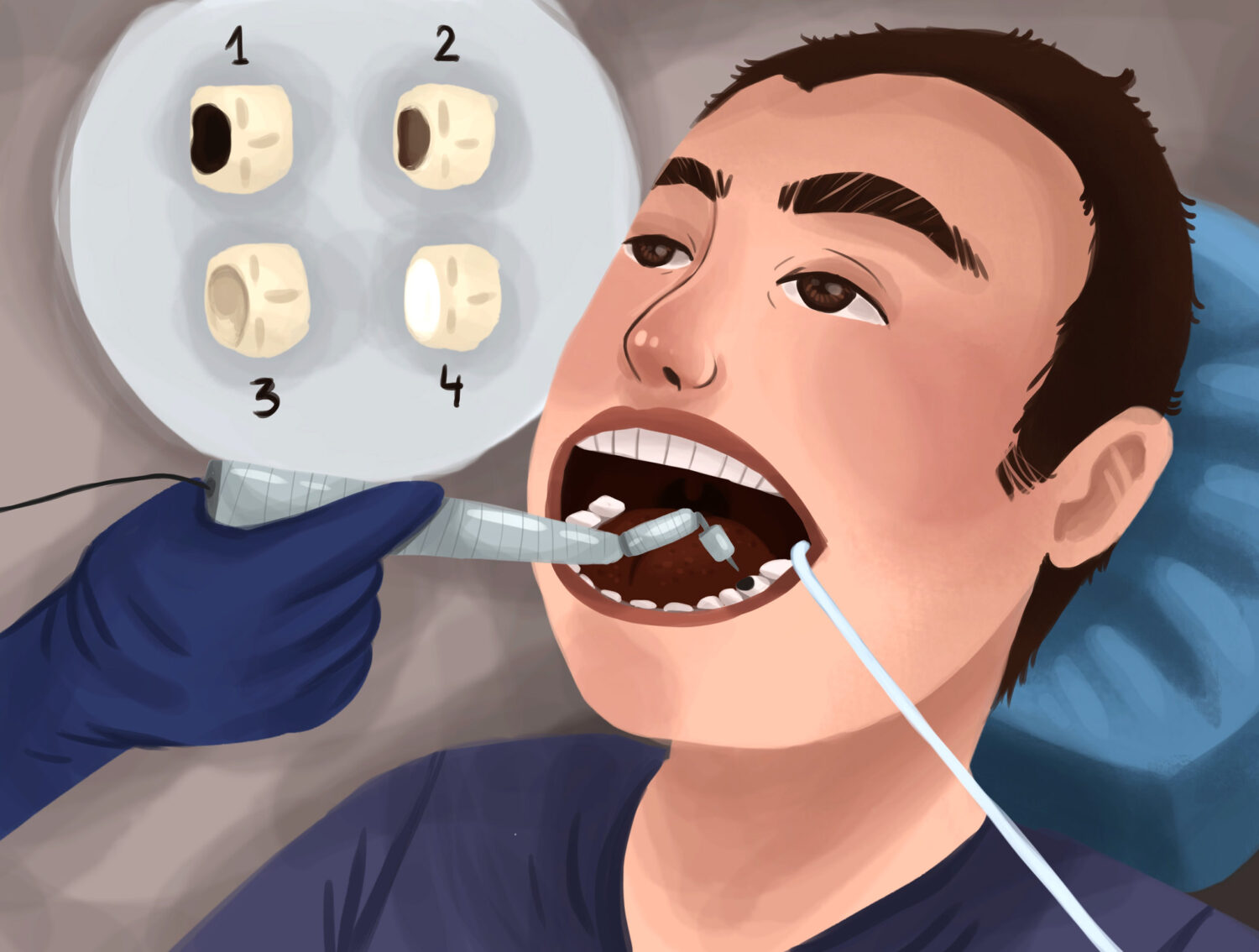In this post, we explore how enamel wears down, what remineralization really means, and how to protect your teeth long-term.
Halloween Candy to Avoid
It’s no secret that candy is not good for your teeth. However, there are certain types of candy that are worse for tooth enamel than others. If you will be eating candy around Halloween, we encourage you to avoid the most damaging kinds.
- Chewy and sticky candy, like caramel, gummy bears and worms, taffy, and Starburst, are hard to get off your teeth. This means bacteria have a continuous buffet to snack on. As they feast, they create damaging acids that erode your enamel.
- Hard candy, such as jawbreakers, Jolly Ranchers, lollipops, and Lifesavers, stay in your mouth longer than other types of candy. This means your teeth are constantly coated in sugar. Thus, your mouth bacteria will constantly be forming damaging acids. Hard candy is also more likely to result in a broken, chipped, or cracked tooth.
- Sour candies, like Sour Patch Kids or Warheads, usually contain citric acid, which helps the candy taste fruity and sour. But citric acid negatively affects tooth enamel by eating away at the minerals that make up your enamel. Weakened enamel can cause sensitivity and is prone to cavities, which are permanent holes in your teeth that must be filled by a dentist.
Safest Halloween Treats for Teeth
Even if you avoid sticky, hard, and sour candy to protect your smile, your Halloween can still be sweet and fun! Opt for the following types of candy, which are easier on your teeth:
- Chocolate melts quickly in your mouth, thus decreasing the sugar’s contact with the bacteria in your mouth. It is also easy to rinse and brush away. Additionally, small doses of dark chocolate may help improve your heart health and blood pressure.
- Chocolate with nuts can help to “scrub” bacteria off the teeth when chewed. Plus, nuts contain protein, healthy fats, vitamins, and minerals that are important for a healthy body.
- Sugar-free gum stimulates saliva production, which helps to wash away sugar and harmful bacteria. Because it doesn’t contain sugar, it doesn’t contribute to tooth decay or gum disease. However, avoid chewing gum if you experience any pain, clicking, or popping in your jaw.
Each morning and night, make sure you carefully brush and floss to clean away bacteria and sugary particles. This is important all year long but particularly in October when your candy consumption is higher! If bacteria and sugar are allowed to accumulate in your mouth, you increase your risk of bad breath, tooth decay, and gum disease. These dental conditions can contribute to scary consequences, such as tooth loss and depression.
Contact our team for additional tips to keep your smile healthy and strong this Halloween!









